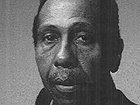Some teens' idea of sport:
beating up homeless people

Police don't know much about August Felix. No one has come forward as family, so Orange County took care of his burial in Chapel Cemetery.
Five Orlando teenagers have been beating the homeless for sport.
They are now facing second-degree murder charges for allegedly beating a homeless man to death. In late March, the body of August Felix, 54, was found at an electric substation. He died 30 days later in the hospital.
"This attack was unprovoked. It never should have happened. Mr. Felix was a person in the wrong place at the wrong time," said Sgt. Rich Ring of the Orlando Police Department.
After their arrests, one of the teens said they were beating homeless people for fun.
The attack on Felix was not an isolated incident. "This group, actually, they were out there like predators looking for someone to beat on and their prey was unfortunately homeless people, and that actually led us to solve the case," Ring said.
Other homeless people told police that they had also been beaten up. The victims were able to identify a couple of the teen-agers, which led detectives to question all of the boys.
The only motivation for the attacks appears to be entertainment, Ring said.
Crimes against the homeless are on the rise nationally. See previous post here. Michael Stoops, executive director of the National Coalition for the Homeless, said there may be a perception among those who commit crimes against the homeless that "you can pick on homeless people and not worry about getting caught."
Read the Orlando Sentinel story here.









6 Comments:
Just a few days ago, a homeless man in Spokane WA was burned to death.
The people that did it were drunk and say they can't remember why they did it.
JD: I wonder what you and others think of the issue of whether to name the suspects in the media. I raise it because when we first reported this in the Sentinel's Orlando Crime blog yesterday, I decided not to use names, following the paper's guidelines to not name juvenile suspects, especially those under 16, in most cases unless they are to be tried as adults. (After a discussion last night, the same decision was made for the print paper article that you link to here.) Comments to my blog post -- and to a past one in which we did not use the name -- were critical. The perception of the commenters is that we protect the juveniles by not using their names, and that the crime of which they are accused is so serious that the public SHOULD know their names. (As far as I can tell, only us and AP did not name them. We had them.) As a lawyer, any thoughts on balancing the right to know versus any special status a juvenile gets in the court system? JC
Seems to me the reason that juvenile suspects shouldn't be named is to avoid branding a kid for kid-type crimes. There's no reason we need to drag a kid through the public mud for stealing a CD. But when it comes to serious crimes, I'm more inclined to let the names come out. (We can debate what's "serious.")
I'm also more inclined to identify 15- and 16-year-olds than younger children.
I will say that the mugshots (on the WESH website) add depth to the story.
Times have changed, I guess, since we all agreed to protect kids who misstep. But I can't call murdering someone a misstep.
No disagreement on minor crimes (your CD example). It would be an exception for a paper to name such a suspect -- an example might be is the juvenile was a well-known athlete or celebrity (a good discussion for another time there). As for serious, again, no disagreement that this is a serious crime. A couple of things gave us pause -- the lack of details from authorities (unlike, for example, the recent similar case in Volusia where we did have a lot of detail). Also, the number of suspects -- we asked ourselves, what if three emerge as the more serious offenders, while two played minor roles and are handled purely in juvenile system. In that case, naming all 5 would "brand" 2, perhaps unfairly. We too often use 16 as a benchmark for naming juveniles held on such serious charges, but not all were 16. We talked again about this at lunch, and there was more support in our small group for naming than not naming. We are following the story, so I suspect the discussion is not done. JC
anyone who kills another human, homeless,child. should be dealt with in the same manner as they commited on someone else. regardless of age.they are like wild animals once they taste blood they will do it again.they should go to the electric chair ,are better still suffer dealth the same way they gaave it out.
You have a very good blog that the main thing a lot of interesting and useful!
Post a Comment
<< Home